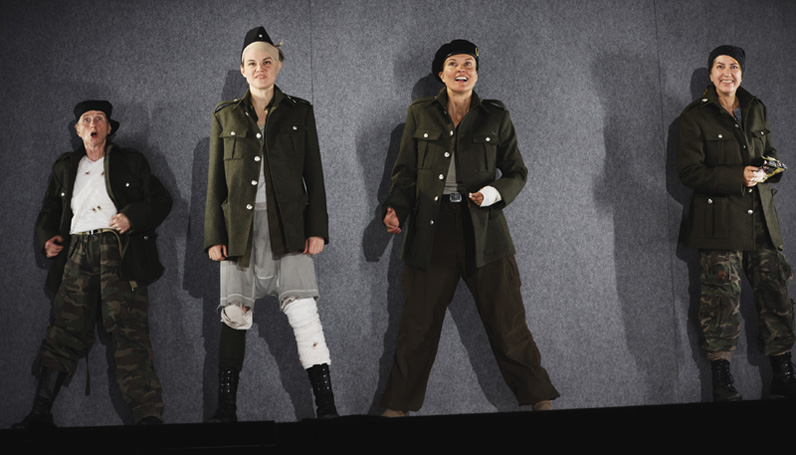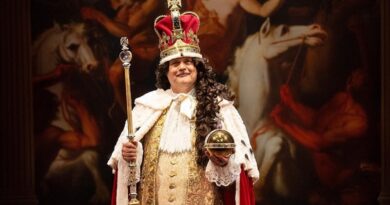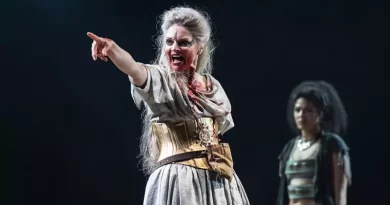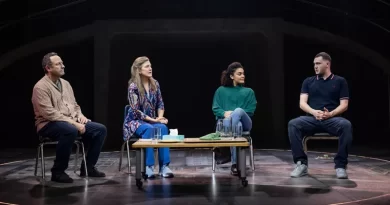“A Child of Our Time”, Theater in der Josefstadt, Vienna
Ludovico Lucchesi Palli in Austria
9 September 2022
After a last-minute cancellation last June due to illness, the highly awaited stage adaptation of Ödön von Horváth’s Ein Kind unserer Zeit (A Child of Our Time) finally opened at Vienna’s Theater in der Josefstadt. Stephanie Mohr not only directs but also adapted this short novel for the stage.
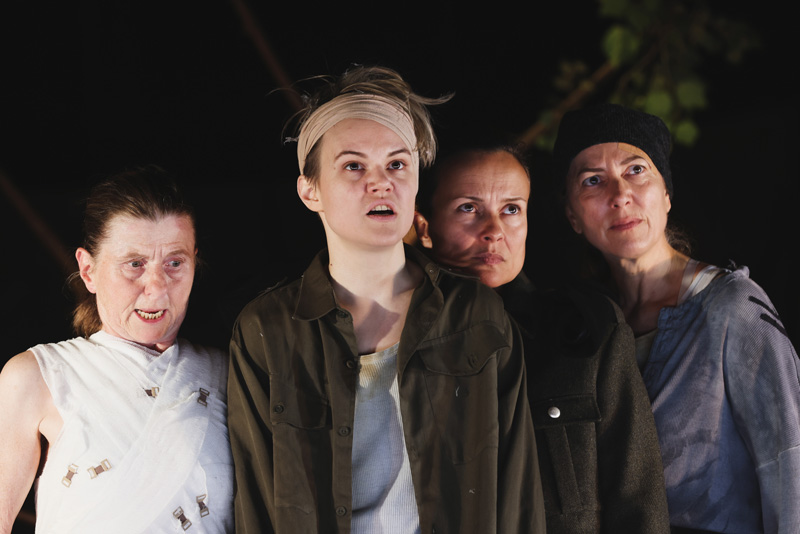
The four narrators.
Photo credit: Moritz Schel.
The original source is written as a monologue and traces the life of a soldier who voluntarily joins an unspecified war to fight for his country. The novel was published after the author’s death in 1938, but his descriptions of what it must have been like to be a soldier in Nazi Germany in the run-up to WWII are extremely accurate, and with the current situation in the Ukraine, they are still relevant today.
In this adaptation, the protagonist (and narrator) isn’t a young man, as one might expect, but four actresses (Therese Affolter, Katharina Klar, Susa Meyer, and Martina Stilp). This might sound like a difficult and odd choice but is in fact the very opposite. They narrate the story, at times individually, at other times in a chorus. The approach works well and adds new layers to the plot. The chorus scenes are particularly effective as the emotion is stronger here, even bolder than in the original novel. The monologues have great impact as well, but the actress work particularly well as an ensemble for a large portion of the play.
Whenever there is verbal interchange, such as the hospital scene or when the protagonist visits his father, they switch to dialogue. Most of the time though, they narrate the story, and do so with great depth and clarity. One actress might begin a sentence, and another one will finish it off in the manner of Caryl Churchill’s Top Girls. This does take some time to work for the audience, particularly in the first scene, where all the actresses talk at the same time. This only happens at the beginning and the rest of the play is mostly easy to follow and engaging, despite the difficult subject matter.
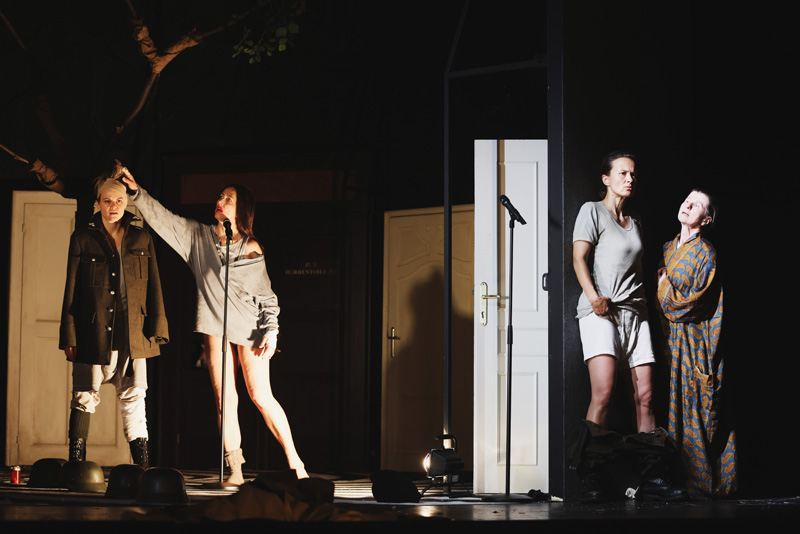
The ensemble.
Photo credit: Moritz Schel.
The four actresses deliver a strong performance. Each one brings something different to the role. Martina Stilp brings out the tough side of the character and so does, at most times, Katharina Klar. Susa Meyer on the other has a more feminine and elegant approach, and Therese Affolter brings bitterness to the role. They rely on each other here, as a group, and the chemistry between them is indeed very strong.
The sets and costumes are by Stephanie Mohr’s regular collaborator Miriam Busch. The set consists of an abstract round geometric form placed on a revolving stage. On the outside there are a few windows, on the inside there is a full set with minimalistic furniture and microphones. These, at times are used by the four actresses, particularly for monologues.
Another crucial aspect of this production is the music by Wolfgang Schlögl who has created a powerful soundtrack that enhances the storytelling
The play is over two and a half hours long but feels much shorter, particularly if you are familiar with the novel.
Unlike many other stage adaptations, Stephanie Mohr retained numerous details of the original source in her adaptation including a lot of the dialogues and the love story with the girl at the amusement park. Even the rather tragic ending is faithful to the novel and it works well. Mohr also manages to capture the emotions of the young soldier even though they are told from the female perspective. This female perspective could be interpreted as four mothers of soldiers but that is not specified in any form here. Mohr has proved once again that she has true flair as a storyteller, and with help of her ensemble, has created a powerful and thought-provoking production.

